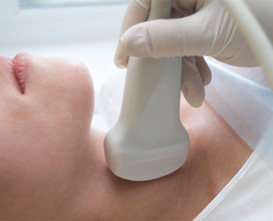
Are you feeling like something is off with your health? Have doctors dismissed your symptoms or perhaps labeled them as being depressed? Unfortunately, you are not the only one. But the good news is, you have come to the right place. At the Wellness and Aesthetics Medical Center in San Antonio, we provide hope and healing for patients struggling with unexplained symptoms. Chances are, it’s a thyroid disorder.
Thyroid disorders encompass a range of conditions that affect the thyroid gland, a small but crucial gland in the neck responsible for producing hormones that regulate metabolism and energy use. Understanding these conditions — hyperthyroidism, hypothyroidism, Grave’s Disease, and Hashimoto’s — is vital for effective management and treatment.
If you suspect you may be dealing with a thyroid disorder or you cannot get to the root of why you are having uncomfortable symptoms, call today to speak with a leading thyroid specialist in San Antonio, TX.
Call (210) 985-1700 or contact us online to schedule your first consultation!
The thyroid gland plays a pivotal role in maintaining the body's metabolic rate, heart function, digestive process, muscle control, brain development, and bone maintenance. Disorders of the thyroid can lead to significant health issues, broadly categorized into two types: hyperthyroidism (overactive thyroid) and hypothyroidism (underactive thyroid).
Hyperthyroidism occurs when the thyroid gland produces too much thyroid hormone, accelerating metabolic processes.
Symptoms of Hyperthyroidism may include:
Conversely, hypothyroidism is characterized by inadequate production of thyroid hormones by the thyroid gland, resulting in a slowdown of metabolic processes.
Symptoms of Hypothyroidism may include:
Grave’s Disease is an autoimmune disorder and a common cause of hyperthyroidism. It occurs when the body's immune system mistakenly attacks the thyroid gland, leading to an overproduction of thyroid hormones.
Symptoms of Grave’s Disease may include:
Hashimoto’s Thyroiditis is the most common cause of hypothyroidism and another autoimmune disorder. The immune system attacks the thyroid, resulting in reduced hormone production.
Symptoms of Hashimoto’s Thyroiditis may include:
Thyroid disorders can arise from a variety of causes, including:
Diagnosing hypothyroidism involves more than just measuring thyroid-stimulating hormone (TSH) levels because TSH tests only reflect the signal to the thyroid to make thyroid hormone. It does not reflect how much thyroid hormone is actually being made.
A thorough diagnosis should include a patient history, symptom assessment, and comprehensive testing for micronutrient deficiencies, leaky gut, and autoimmune markers, such as thyroid peroxidase antibodies (TPOab) and antithyroglobulin antibodies (ATA).

Since 1980, healthcare costs in the U.S. have soared from $256 billion to over $2.6 trillion. This increase coincides with a significant rise in obesity—67% of Americans are overweight, with 33% classified as obese, starkly contrasting with lower obesity rates in countries like France (8%) and Italy (9%). The link between low thyroid hormone levels and obesity is well-documented, with obesity often leading to a domino effect of health issues such as type 2 diabetes, hypertension, coronary artery disease, degenerative joint disease, Alzheimer's, and cancer.
When patients approach doctors with symptoms that could indicate thyroid issues—like feeling cold, tired, weight gain, and hair loss—they often face a dismissive attitude. Instead of thorough thyroid function testing, they are diagnosed with depression or told their thyroid levels are "normal" based on a TSH test designed to classify 95% of results as normal, despite the obesity epidemic suggesting that such a high percentage of normalcy is improbable.
This prevalent practice underscores a broader issue in healthcare: a preference for quick, medication-based solutions over investigating and addressing the underlying causes of health problems. This approach is heavily influenced by insurance and pharmaceutical companies, which exert control over medical practices and education. These entities show little interest in promoting natural health solutions, preferring a system reliant on synthetic medication and continuous healthcare services, as it benefits their financial bottom line by keeping the public in a cycle of health dependency and higher healthcare and medication costs.
Treating hypothyroidism effectively requires addressing the underlying causes of the condition. Traditional approaches have included desiccated thyroid extract, a combination of T3 and T4 hormones that mirrors what the thyroid naturally produces. However, treatment should also focus on:
Thyroid disorders require careful management and treatment tailored to the individual’s specific condition and needs. For San Antonio, TX residents, dealing with these conditions, seeking specialized medical care, and adopting a proactive approach to health can lead to effective management of thyroid disorders, ensuring a better quality of life.
Call today to schedule a consultation with a top thyroid specialist in San Antonio, TX. Call (210) 985-1700 or contact us online to schedule your first consultation!
Dr. Williams and his Angels—Vanity, Rhonda, and Larissa—are nothing short of miracle workers. Their expertise is simply unmatched, blending the most advanced techniques with an artistic touch that creates a perfect harmony between science and beauty.
Lisa
Dr. Williams is truly a master at his craft. He takes a personalized & multi-pronged approach to total transformation. I can honestly say Dr. Williams has done wonders for my wife and I.
Ryan
I had a great time at The Wellness and Aesthetics Medical Center and Spa. The entire staff is very friendly and knowledgeable. They provide excellent customer service. I am very thankful for the excellent care Dr. Williams provides and the unique gift he is to all his patients.
Blanca
The Wellness & Aesthetics Medical Center
540 Oak Centre Dr, Suite 114
San Antonio, TX 78258
Phone:
(210) 985-1700